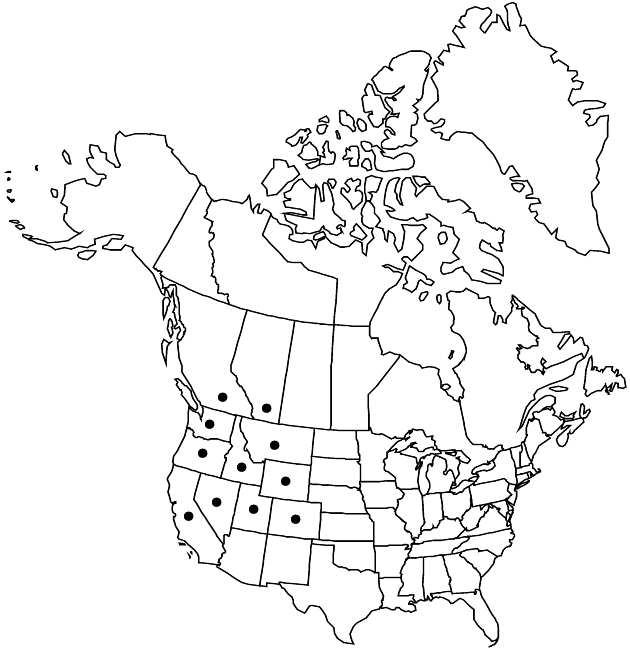Difference between revisions of "Ericameria nauseosa var. speciosa"
Phytologia 75: 87. 1993.
FNA>Volume Importer |
FNA>Volume Importer |
||
| Line 60: | Line 60: | ||
|publication year=1993 | |publication year=1993 | ||
|special status= | |special status= | ||
| − | |source xml=https://jpend@bitbucket.org/aafc-mbb/fna-data-curation.git/src/ | + | |source xml=https://jpend@bitbucket.org/aafc-mbb/fna-data-curation.git/src/f50eec43f223ca0e34566be0b046453a0960e173/coarse_grained_fna_xml/V19-20-21/V20_118.xml |
|tribe=Asteraceae tribe Astereae | |tribe=Asteraceae tribe Astereae | ||
|genus=Ericameria | |genus=Ericameria | ||
Revision as of 20:23, 16 December 2019
Plants 40–200 cm (shorter in some alpine forms). Stems whitish, leafy, loosely tomentose. Leaves dark green to grayish white; blades 1-nerved, linear to linear-oblanceolate, 30–70 × 0.3–1.5(–2.5) mm, faces usually loosely, rarely compactly, tomentose. Involucres 7.5–13.5 mm. Phyllaries 12–28, apices erect, acute, abaxial faces tomentose (especially outer), sometimes sparsely. Corollas 8.7–13 mm, tubes tomentose or glabrous, lobes 1.1–2.1 mm, glabrous; style appendages longer than stigmatic portions. Cypselae densely hairy; pappi 6–11.3 mm.
Phenology: Flowering late summer–fall.
Habitat: Dry habitats, including juniper-sage, yellow pine, and pinyon communities
Elevation: 50–3500 m
Distribution

Alta., B.C., Calif., Colo., Idaho, Mont., Nev., Oreg., Utah, Wash., Wyo.
Discussion
Variety speciosa intergrades with vars. hololeuca and oreophila. Stabilized hybrids with Ericameria discoidea occur in Mono County, California.
Selected References
None.